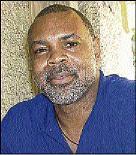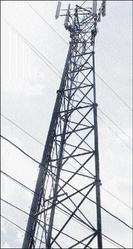Susan Gordon, Staff Reporter

Webster
MiPhone and rival Digicel Jamaica are blaming each other for the breakdown of a reciprocal agreement brokered by government that allows telecommunication companies to share cell towers, with the Mexican company claiming that the Irish mobile operator was denying it access.
Digicel dismissed the claim, and countered that MiPhone was not conforming to the rules, as market rivalry heats up.
The idea behind the so-called 'co-location' agreement in effect for several years is to limit the amount of land needed to build the multiplicity of cell towers to blanket the island with signals, while allaying public concern about the environment and their health from the radiation.
But last week, the companies told Wednesday Business, that essentially the arrangement was struck as 'a gentleman's agreement' between the three big firms, the other being Cable and Wireless Jamaica, under the umbrella of the Ministry of Technology.
Digicel has more than 1,000 cell towers spread across the island; MiPhone wants to establish towers on some 600 sites.
MiPhone's chief operating officer Colin Webster said the arrangement, though not contractual, was working up to 2007, the point at which America Movil acquired the company from Oceanic Digital.
"The sad thing is that the relationship we've had with Digicel where you could go and fix your antenna, has broken down very badly because we have been actively blocked almost from the development that we are doing and the use of their towers," Webster told Wednesday Business last Friday in an interview.
"It was disappointing. Up to then, we had a very cordial and cooperative sharing arrangement," said Webster.
But Digicel's Technology Director Rohan Pottinger, denies reneging on the arrangement, and charged that it was MiPhone that has failed to meet the requirements laid down earlier this year by the Ministry of Energy, Mining & Telecommunications.
"There has been an arrangement between Digicel and MiPhone for co-location from as far back as 2003 which is still in use," said Pottinger.
"There is also a similar arrangement between Digicel and C&W," he said.
The company said it faces no such problems with Cable and Wireless. Sources tell Wednesday Business that C&WJ and MiPhone are sharing about 90 cell towers.
The older telecom had not responded to queries on the matter to press time.

MiPhone latest troubles follow behind its run in with planning authorities for failing to secure approval for the towers it is building.
MiPhone has blamed its Chinese contractor Huawei Technologies Jamaica Limited for the mix-up, which has delayed the planned roll out of its 3G service.
The company plans to build out about 600 towers to accommodate its 3G network, while retaining its 100 CDMA towers.
C&WJ is also on a massive build out of cell sites to accommodate its 3G network, a job contracted to Ericsson for over $2 billion.
Digicel's Pottinger said it was surprising that MiPhone had raised the tower sharing arrangement with Wednesday Business, but not with his company.
"Incidentally, we have had several meetings with MiPhone in recent months and it is interesting to note that they have not even once mentioned the issue of tower sharing in that time," said Pottinger.
MiPhone has not yet declared the markets that it plans to launch here, but it sources have told Wednesday Business that it was one of four companies to express interest in the 2.5 GHz spectrum to be auctioned.
That spectrum allows for subscriber television, mobile 3G service and wireless broadband internet.
Webster said the company was "undecided" about going after one of the three licences to be issued, but also said the company does not necessarily require the 2.6 GHz spectrum to enter the STV market.
"America Movil has this service, so it's just a matter of replicating it here," said Webster.
MiPhone, he adds, has applied to the Broadcasting Commission for a cable licence.
"Our immediate interest is through satellite - direct open satellite - essentially Direct TV..." he said.
sabrina.gordon@gleanerjm.com

